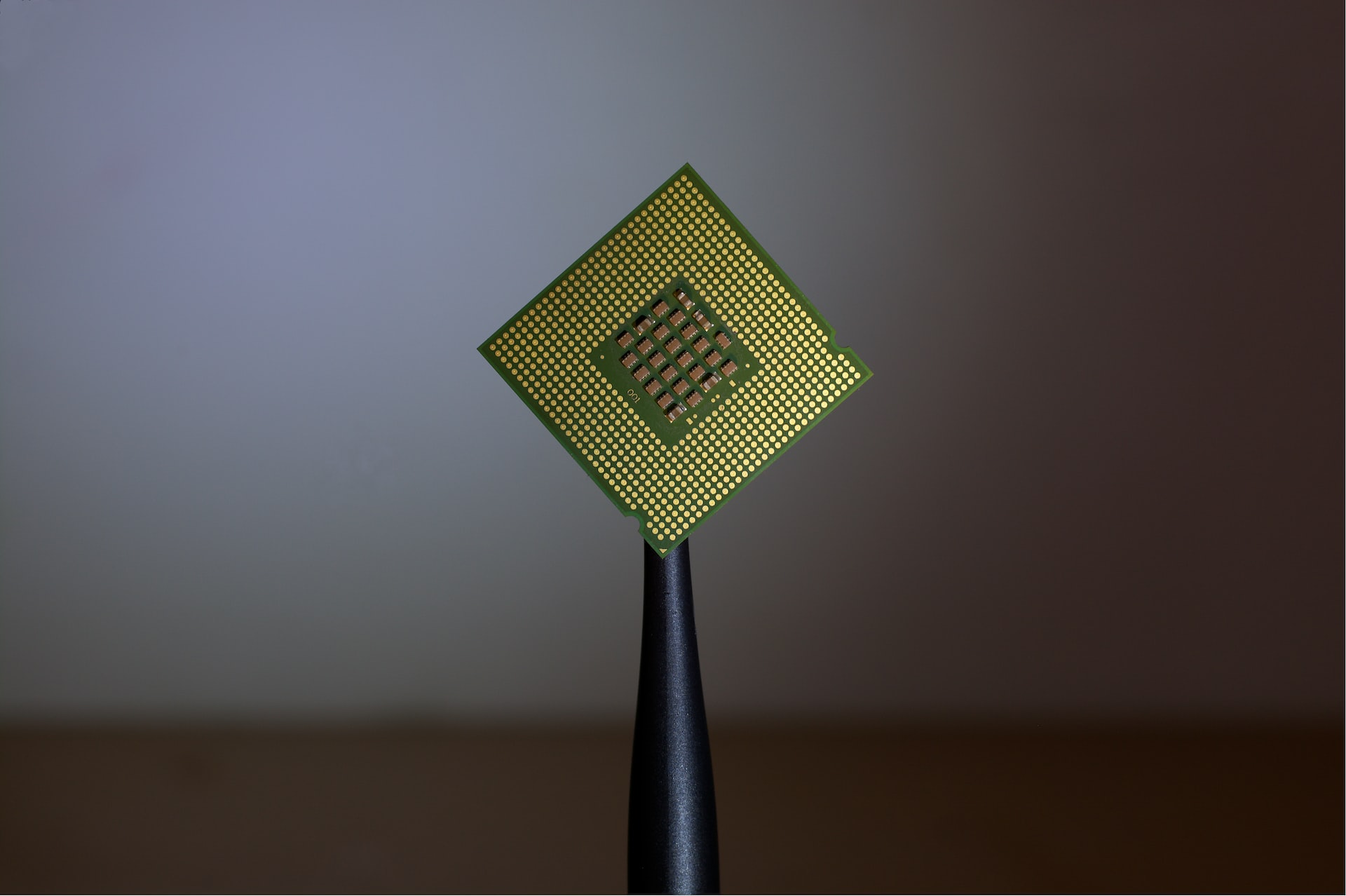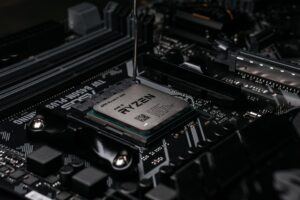The CPU, or Central Processing Unit, is the primary component of a computer that performs the majority of its processing tasks. It is often referred to as the “brain” of the computer, as it is responsible for executing instructions and controlling the operations of the other components.
The CPU is essential to the functioning of a computer, as it is the component that carries out the instructions given by the software. Without a CPU, the computer would not be able to execute programs, access or process data, or perform any of the other tasks that we use computers for.
In this article, we will explore in-depth the role of the CPU in a computer, the functions it performs, and why it is considered the control center of the computer. We will also discuss the impact of the CPU on performance and the evolution of CPU technology over time.
Why is the CPU Considered the Brain of the Computer?
The central processing unit, or CPU, is often referred to as the “brain” of the computer. This is because the CPU is responsible for executing the instructions that make the computer perform a wide range of tasks. In many ways, the CPU acts as the control center of the computer, directing the flow of data and coordinating the various components to carry out the desired operations.
The CPU performs several important functions, including managing input and output operations, managing memory and storage, and determining the overall performance of the computer. For example, when a user clicks on an application icon, the CPU retrieves the corresponding data from the hard drive and sends it to the graphics card for display. When the user inputs data, the CPU processes the information and stores it in memory or on the hard drive as needed.
Another important function of the CPU is controlling the flow of data between the different components of the computer. For example, when a user requests a file from the hard drive, the CPU retrieves the data and sends it to the memory for processing. The CPU also manages the flow of data between the computer and peripherals, such as printers, keyboards, and mice.
The performance of the CPU is a critical factor in determining the overall performance and responsiveness of the computer. A fast, powerful CPU can execute instructions quickly and efficiently, while a slower CPU will result in slower, less responsive performance. For this reason, the CPU is often considered the most important component of the computer, and many computer users and IT professionals choose to invest in high-performance CPUs to improve the performance and responsiveness of their computers.
What is a CPU and its functions?
The CPU is made up of several key components, including the control unit (CU), arithmetic logic unit (ALU), and register units. The control unit is responsible for fetching instructions from memory and directing the operation of the other components. The ALU performs mathematical and logical operations, and the register units store data temporarily for use by the ALU.
CPU’s main functions: fetch, decode, execute
The CPU performs three main functions: fetch, decode, and execute. In the fetch stage, the CPU retrieves an instruction from memory. In the decode stage, the CPU interprets the instruction and determines what operation it represents. In the execute stage, the CPU performs the operation specified by the instruction. This fetch-decode-execute cycle repeats continuously, allowing the CPU to process many instructions in a short period of time.
The role of the CPU in managing the computer’s resources
In addition to executing instructions, the CPU also plays a key role in managing the computer’s resources, such as memory and I/O devices. The CPU communicates with these components, directing their operations and managing the flow of data between them. By managing these resources effectively, the CPU ensures that the computer operates efficiently and can carry out complex tasks.
The CPU’s role in executing instructions
The CPU is the control center of the computer, executing the instructions that allow the computer to perform a wide range of tasks. These instructions can be as simple as performing a calculation or displaying information on the screen, or as complex as running a video game or rendering a 3D model.
The CPU also plays a crucial role in controlling input and output operations. It manages the flow of data between the computer and external devices such as the keyboard, mouse, and monitor. This allows the user to interact with the computer and receive information from it in real time. Additionally, the CPU manages the input and output of data to and from storage devices, such as hard drives and solid state drives, which are essential for storing and retrieving large amounts of data.
Overview of the CPU’s role in managing memory and storage
In addition to input and output operations, the CPU also plays a key role in managing the computer’s memory and storage. It manages the allocation of memory to different programs, ensuring that each program has enough memory to run effectively. The CPU also manages the transfer of data between memory and storage, ensuring that data is stored and retrieved efficiently. By effectively managing memory and storage, the CPU plays a crucial role in maintaining the performance and stability of the computer.
Impact of the CPU on Performance
The CPU is a major determinant of a computer’s overall performance. The faster and more efficient the CPU, the quicker the computer can execute instructions and respond to user input. A powerful CPU can make the difference between a computer that feels fast and responsive, and one that feels slow and unresponsive.
The impact of CPU clock speed on performance
One of the key factors affecting the performance of the CPU is its clock speed, which is measured in GHz. The clock speed determines the number of instructions that the CPU can execute in a given period of time. The higher the clock speed, the more instructions the CPU can execute, which can result in improved performance.
How the number of CPU cores affects performance
Another factor affecting the performance of the CPU is the number of cores it contains. Each core is a separate processing unit that can execute instructions independently of the others. Having multiple cores in a CPU allows the computer to carry out multiple tasks simultaneously, improving performance and responsiveness.
The impact of other factors on CPU performance
Other factors can also affect the performance of the CPU, such as thermal design power (TDP) and architecture. TDP measures the amount of power a CPU uses, and can affect performance by limiting the clock speed or causing the CPU to throttle (reduce its performance) to avoid overheating. The architecture of the CPU, such as the size of the cache, can also impact performance, as it affects the speed at which data can be accessed and processed.
Overview of the evolution of CPU technology and its impact on performance
Over time, CPU technology has evolved, leading to improvements in performance and efficiency. For example, advances in manufacturing processes have allowed for the creation of smaller, faster, and more power-efficient CPUs. These advancements have had a major impact on the performance of computers, allowing them to carry out increasingly complex tasks and providing users with a more seamless and enjoyable computing experience.
The Evolution of the CPU
The CPU, or central processing unit, has come a long way since its inception. The first CPU, known as the Intel 4004, was released in 1971 and had a clock speed of just 740 kHz. Since then, CPU technology has advanced significantly, with modern CPUs capable of executing billions of instructions per second.
Major milestones in the evolution of the CPU
There have been several major milestones in the evolution of the CPU. The first, the introduction of the microprocessor, marked the transition from mainframe computers to personal computers. The introduction of multi-core CPUs revolutionized performance and efficiency, allowing computers to carry out multiple tasks simultaneously. More recently, the development of cloud computing and the Internet of Things has further expanded the role and importance of the CPU.
The impact of advancements in manufacturing processes on CPU technology
Advancements in manufacturing processes have also had a significant impact on CPU technology. By shrinking the size of transistors and other components, manufacturers have been able to create smaller, faster, and more power-efficient CPUs. This has allowed computers to become more powerful and versatile, expanding the range of tasks they can perform.
Future trends and advancements in CPU technology
Looking to the future, it is likely that CPU technology will continue to evolve and expand. Advances in areas such as artificial intelligence, quantum computing, and edge computing are likely to play a role in shaping the future of the CPU and the computers it powers.
Conclusion
The CPU, or central processing unit, is the brain of the computer, executing the instructions that make the computer perform a wide range of tasks. It is the control center of the computer, managing input and output operations, memory and storage, and determining the overall performance of the computer.
CPU technology continues to evolve, bringing new capabilities and improvements in performance and efficiency. As technology continues to advance, it is likely that the CPU will become even more important in determining the performance and capabilities of computers.
Final thoughts on the significance of the CPU
In conclusion, the CPU is a crucial component of the computer, playing a vital role in determining the performance, responsiveness, and stability of the computer. Understanding the role and importance of the CPU is essential for anyone who wants to understand how computers work and how to optimize their performance. Whether you are a computer user, a technology enthusiast, or an IT professional, a deep understanding of the CPU is an important aspect of your knowledge and skill set.




